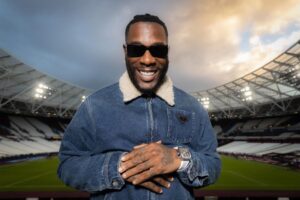The Nigerian-born, California-raised music artist has been on a transformative journey of self-love. Recognizing that it takes loving yourself first before you can truly love another, her latest single A hurum gi n’anya is a beautiful expression of love and acceptance that is truly heart warming. I spoke with Mary Akpa for Amplify Africa, and she shared how her childhood shaped the woman she has become, some of her musical influences, and the many layers of her purpose in life.
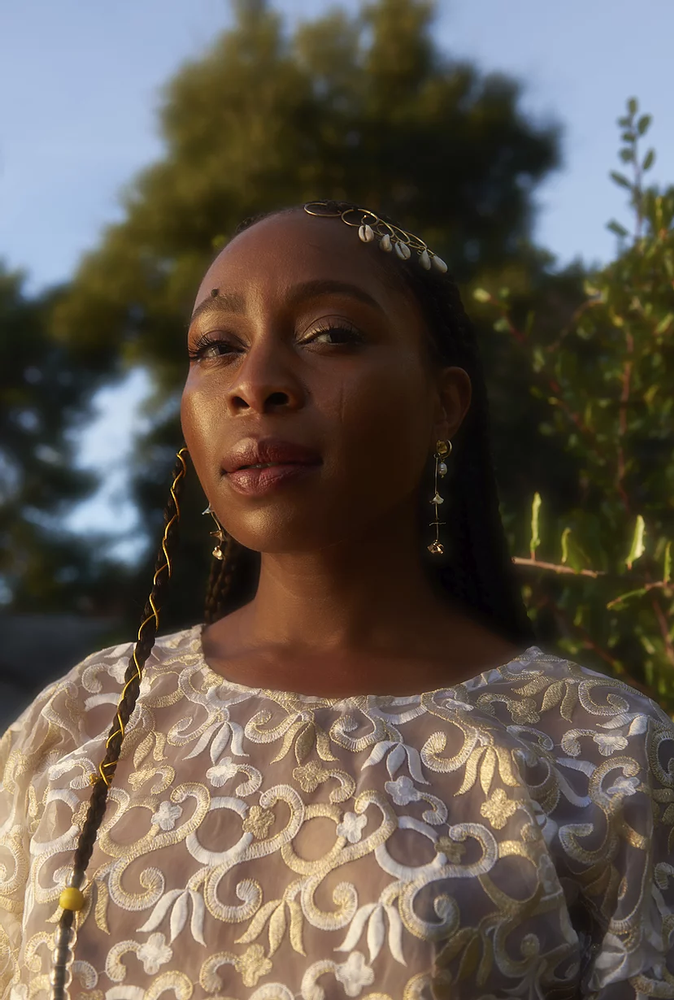
Photo: Mary Akpa by Nikk Rich
Amplify Africa: Hi Mary, it’s great to meet you. So let’s start from the beginning, tell me what your childhood looked like?
Mary Akpa: Well, we immigrated to the U.S. when I was around two and a half years-old. My mom was very established in Nigeria prior to us coming here so it wasn’t the typical immigrant story. We wound up in a low income neighborhood so there was this shift of coming from stature with American dreams and then finding ourselves in a situation we didn’t intend to end up in. It shaped my childhood tremendously because while my mother ensured I was immersed in Nigerian culture, I was raised and grew up also deeply steeped in the African American experience categorized by growing up in the projects. There was a real dichotomy trying to exist in that world and it took me a long time to accept that I could bring my ‘Nigerianess’ to my Blackness. That fact that I’m connected to my roots and culture gives me something to share with the people that I am immersed in this Black experience with.
AA: So, growing up did you always want to get into music or what were your aspirations as a child?
MA: I’ve always been a musician. I don’t know if I always wanted to be a performer but I just always sang and performed. My mom would force my older brother to perform duets with me which he hated (laughs). It wasn’t until elementary/junior high where it became a part of my identity. A few of my teachers heard me sing and were like ok, we need to do something with that. People were recognizing the gifts within me that brought me joy, but I still didn’t think it was something I would do for the rest of my life.
AA: What was your mother’s reaction to you wanting to be a full time musician?
MA: As a single mother she has always been incredibly supportive and encouraging to the point where when I felt like quitting, she was the person who kept me on track and reminded me that this is my purpose. She believes so strongly that each person is blessed with a purpose and that is the reason she has always supported my career. When I went to UCLA for undergraduate I studied Ethnomusicology Jazz Studies and Business Economics. My mom pushed me to pursue the music and silenced family members who tried to push me towards law school or other academic avenues that didn’t interest me. She’s always supported me and I recognize that is rare for young African creatives.
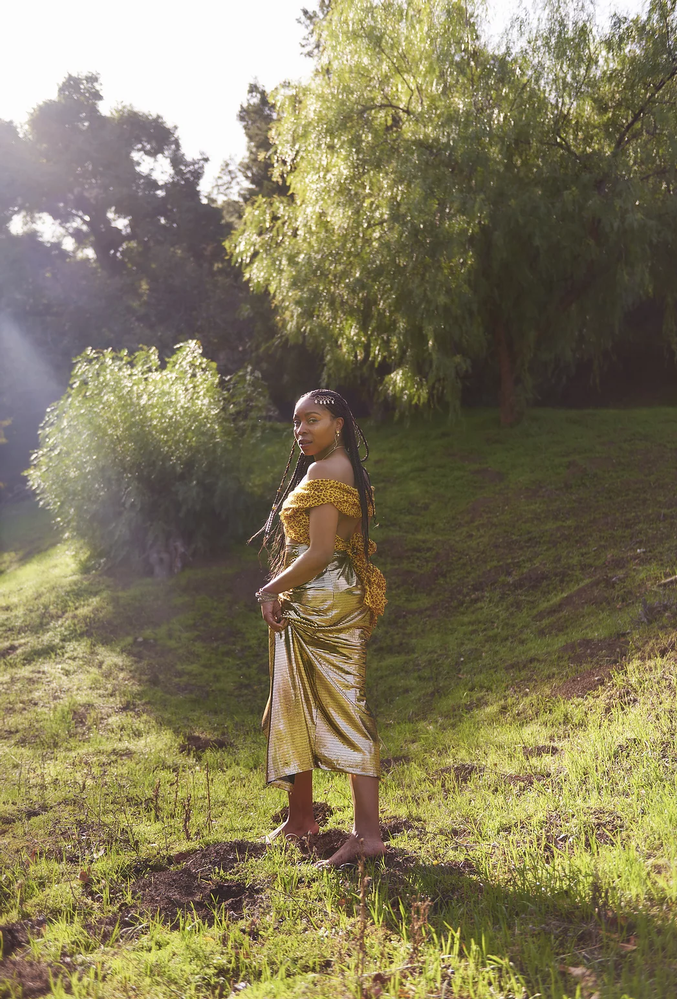
Photo: Mary Akpa by Nikk Rich
AA: Speaking of purpose, what do you believe is your purpose?
MA: Wow. I think I’m still learning to put it into words because part of it is more a feeling that I know. I spent a lot of my life thinking your purpose is just one thing, but your purpose is in the every day. For me, music is definitely my purpose and because it hasn’t been an easy journey, I didn’t even believe that until recently. After almost 20 years of being in the industry, a lot of it has been difficult because I didn’t know it but I was following that still voice inside that guides you on the path of your purpose. I wasn’t choosing the popular route, and even when I had certain opportunities it would seem like I was sabotaging but it’s because I knew it wasn’t in line with who I am, which made breaking into the industry harder, but I always listened to my soul.
Because I am immersed in the Black American experience, because I have a very close attachment to my culture, putting those together is also part of my purpose. As someone who had the experience of growing up where I did, I have a deep understanding of that pain and the trajectory it can put you on when you feel like you have nothing that’s yours. So, if I have something that’s mine and I understand your experience, then it’s going to be all of ours. That has been my approach in adding Igbo to my music. With my latest single, A hurum gi n’anya, I always intended to change it to “I love you” which is what it means in English, but then I realized the impact of the word was so much deeper for me in Igbo, so I kept that.
AA: What does music mean to you?
MA: I have such a reverence for music because it is one of the most powerful entities. It’s like magic. You can hear a song, and you don’t need to understand the language or what the person is saying but you can feel something. It will take you to a place. What else does that but God? It’s transformative. To be a musician has been such a calling because it has shown me the way to live as a human being. What I’ve learned about music is that it’s given to you for it to exist as it’s given to you, and sometimes that alone is a lesson in letting go of our ego. I’ve seen my ego reflected back at me more as a musician than in any other area of my life.
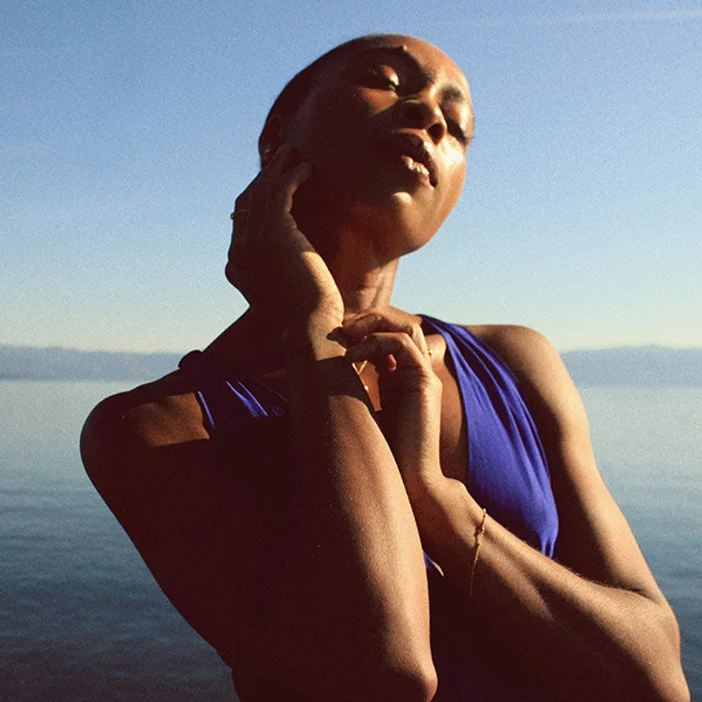
Photo: Mary Akpa by Pedro Cesario
AA: How would you describe your style of music?
MA: It’s a blend of Afro soul and jazz, so I would say my style of music is Afro jazz.
AA: Growing up, who were some of your musical influences?
MA: My mom played a LOT of Nigerian music. King Sunny Ade was a huge presence in our house, of course Fela Kuti, though my mother would reference Fela more than actually listen to his music. We listened to a lot more Nigerian artists, a lot of contemporary Christian music, gospel artists like Fred Hammond and Kirk Franklin. We also listened to some Dolly Parton because my mom loved her, and I think that’s what sparked my interest in the storytelling aspect of songwriting. People know Afropop now because it’s so popular but before that there was Afrobeat which built on Highlife, which built on Jùjú. That is those really beautiful rhythmic syncopated guitar melodies that are so sweet. That’s what I grew up listening to more than anything else. If you listen to my music it’s heavy on the guitars and that’s definitely where the influence came from
AA: There’s a lot of cultural representation in your music. How much of that do you think just naturally comes out, as opposed to you purposefully using certain techniques and styles to intentionally represent your culture?
MA: You know I think it’s a mix of both. It started with the former, so it would just naturally come out of me and then it developed into me being more intentional about it.
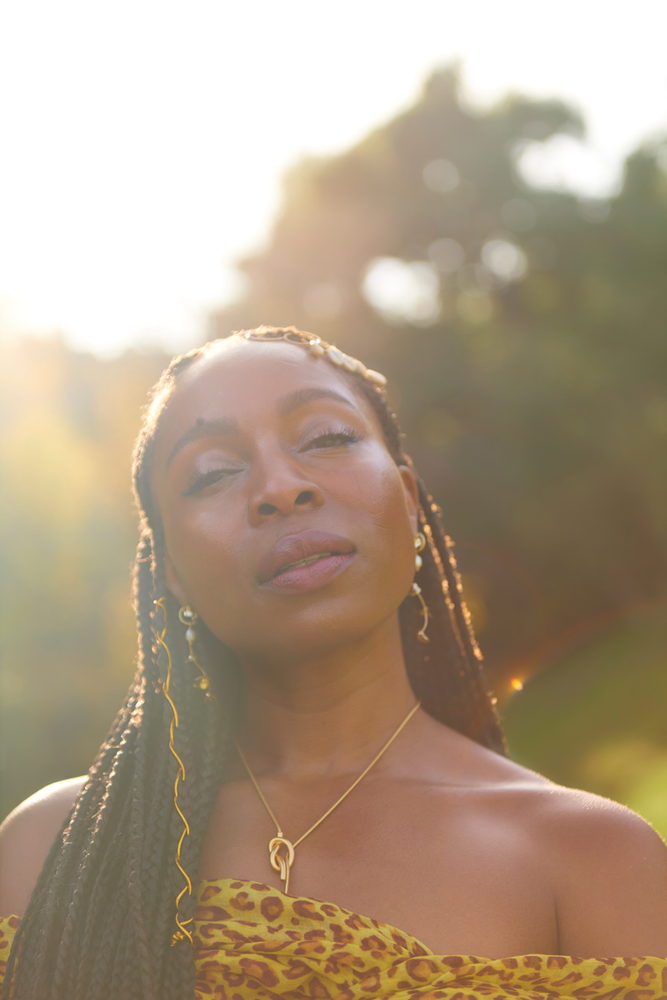
Photo: Mary Akpa by Nikk Rich
AA: What does your musical process look like?
MA: Well I’ll go into a writing session and I sing them the part, then they’ll play it and we keep doing that until we have the whole song. The music was naturally coming out of me but I would meet the opposition of my own self doubt and then if I was questioned I would feel like it wasn’t right. What has evolved for me on this album is the mirroring of both. This comes out of me and there is a reason, and I now have context as I’ve learned about my family history and my grandfather being a musician.
AA: I know that bridging the gap between the continent and the diaspora is something you’re passionate about.
MA: Yes! I actually put together a mini Igbo lesson and it’s definitely something I want to continue; this sharing, merging and bridging gaps across the diaspora. The lesson would teach Black people of different ages in my community how to say A hurum gi n’anya and the meaning behind it so that they can use it. Now they know how to say an Igbo word!
https://www.youtube.com/watch?v=WdrAAogAAZ0
AA: Tell me more about your latest single A hurum gi n’anya
MA: I started writing it in Nigeria with the guitar line. I knew I needed 3 guitars to play the rounds. We were in the session which is where I normally freestyle my idea. A hurum gi n’anya is what kept coming to me, but not the rest of the words. When I returned from Nigeria I intended to write the song but I was stuck. A friend of mine told me to lean into what was organically coming out of me and to not be so caught up in ‘trying’ to be a songwriter. So that’s what I did. The song is about me not seeing myself and not loving myself. It was an emotional writing process but important for me to write because I needed that to be able to accept myself.
AA: Naija Girl Tribe (NGT) is a non-profit that you co founded. Tell me what sparked the creation of that and what is the vision that you have for it?
MA: So, that’s another part of my purpose. Our mission is to provide resources for personal and professional development for Nigerian girls. We host workshops on various topics (determined by our girls), group counseling sessions, one-on-one deep dives, and are creating a mentor-matching program to support all of this. Since the beginning of the pandemic, we’ve been forced to temporarily shift our programming onto virtual platforms – a big shift for us. The beautiful thing is that it’s allowed us to build on the resources that we’re offering our girls, while partnering with them during key protests that happened during the pandemic (EndSars and Rape/Gender Violence/Body Autonomy). A big development for us is called “NGT Chat Sessions” where we feature Black women from all backgrounds, working in diverse fields across the diaspora. They share their journey, learnings, answer questions from the girls, and share tips for anyone who’s interested in their field. We plan to build on this to create panels that we’ll host in Nigeria, as well as an internship program. Our long term goal is to have NGT resource/activation centers throughout Nigeria – a safe space for any girls who need immediate shelter; and to house our programming, and allow our girls to activate as they wish. We’re also planning to partner with organizations that serve young Black women throughout the diaspora, to create exchange programs. We’re just getting started, but we are dedicated to seeing this through.
Mary’s upcoming full-length debut album Nnoo will be released this spring. You can follow her on Instagram and Facebook for updates.
Powered by WPeMatico

